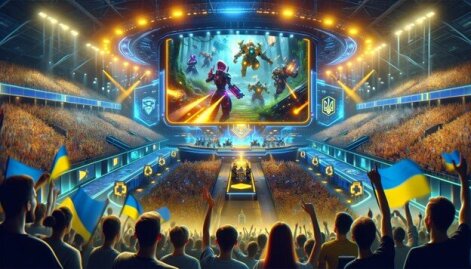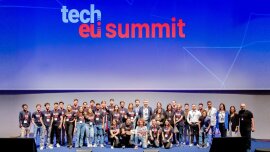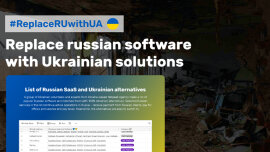Gaming has long occupied the attention of the average person, just like cinema, theater, books and other forms of pastime. The same can be said about e-sports, and both areas are often misunderstood, underestimating or, conversely, overestimating their capabilities, influence and prospects.
Gaming and eSports – soft power in the world
Governments of different countries often resort to e-sports, and sometimes to gaming, as elements of soft power. For example, one of the largest (if not the largest) esports company in the world, ESL FACEIT Group, emerged from a $1.5 billion acquisition and merger deal by Savvy Gaming Group, which has close ties to the Saudi Arabian government.
Romanian esports operator PGL, which typically runs multi-million dollar The International tournaments for Valve, proudly stated in a recent press release : “PGL stands out as the last independent tournament organizer in the industry, without government investment.” This quote illustrates how different countries are involved in eSports.
In Asian countries, eSports are more institutionally developed than in the so-called West. A striking example here is South Korea, where there are known cases where e-sportsmen received a deferment from the army (but not a way to avoid it), and matches from the beginning of the 2000s could be watched on TV.
Countries like China tightly regulate local and international esports companies and monitor the activities of players. For example, Beijing’s hand showed itself during the protests against the inclusion of Hong Kong into “greater” China. Then the Hearthstone player spoke live in support of the protesters. The American company Blizzard, which owns the game, found itself in an unpleasant stretch - it had to impose sanctions against the player in order to continue operating in China, despite criticism from viewers and the loss of sponsors.
Are e-sports and gaming considered seriously in the Russian Federation? Definitely yes. There are many examples, I will give a few of the most eloquent ones. So, after the victory of the “Russian” team (two of the five players are Ukrainians) Team Spirit at The International 2021, a note appeared on the official Kremlin website congratulating the team personally from Vladimir Putin . Ironically, Team Spirit showed itself in one of the two cases known to me when e-sportsmen from Russia openly and unequivocally condemned the Russian military aggression against Ukraine in the first days of the war.
Another example, this time from the gaming industry. After the outbreak of a full-scale war, the Russian company Mundfish released the game Atomic Heart. The plot of the game as a whole is outside the context of war, but in it you can find several “Easter eggs” such as cans of pork in yellow and blue colors. There are also futuristic drones with pots of geraniums, which can easily be read as a reference to the Iranian “mopeds” (Shahed-136), which the Russian Federation officially calls “Geranium-2”. While dispersing the next “jackal express” and demanding that digital distribution services ban and stop selling the game, the Ukrainian “cyber warriors” were unable to place the right emphasis, which only led to the Barbra Streisend effect.
E-sports and sports, what is the true difference?
Wikipedia and other “encyclopedic” sources will say that eSports is a competition based on a computer game. I think this definition is insufficient because it does not reflect the essence. For example, is chess an eSport if the competition takes place not on a physical board, but in a digital interface? The same can be said about any card game and other types of competitions that take place in the virtual space.
I define eSports as competition based on a computer or video game that is owned by someone else. To understand what I'm talking about, think about football and FIFA. In 2021, top European clubs announced their intention to create the European Super League (ESL, but not to be confused with the ESL FACEIT Group) and play there only among themselves. The FIFA leadership, who did not want to lose influence, did not allow the launch of ESL, acting mainly through threats and sanctions. At the same time, FIFA could not directly ban anyone from playing. If clubs or just individual players decided to rent a room, sell a bunch of tickets and play football, they have all the rights to do so, because football does not belong to FIFA. Technically, you can go even further and change the rules - raise the goal high above the ground and add another ball, upon catching which the player earns 150 points and ends the match.
In eSports things are different. Each game has a specific owner who has absolute power over everything related to the competitive ecosystem. If, for example, in League of Legends, clubs decided to organize their own league, Riot Games management could easily block public coverage of the competition - simply by sending a message to Twitch and YouTube. Moreover, the developer can technically cancel any match at any time. The rules and “mechanics” of the game are also strictly controlled by the developer.
Professional sports can exist simply because a businessman decided to invest money. Thus, nothing legally prevents Elon Musk from allocating several billion dollars for a new series of tournaments in the game “sea battle” - it’s enough just to create an organizational structure, write down the rules, announce dates and regulations. To do the same for the hypothetical Mortal Kombat 11, Musk would have to first negotiate with Warner Brothers, who will most likely set restrictions on the dates of the event (so that “their” league does not suffer) and will require an agreement on the list of advertising partners (so that the wrong sponsors did not enter) and in general will create a number of unpleasant obstacles.
For the same reason, those who are involved in any way in the industry are usually afraid to criticize the owner and/or publisher of the game, because such companies usually determine which contractor will get the opportunity to host the next tournament, which team will be invited directly to the “closed” qualifying stage , which commentators will be hired to cover the broadcast, and so on.
Ukrainian projects with international significance
Below I will list several Ukrainian companies of international importance that operate in the fields of gaming and e-sports. This is not an exhaustive list, but my personal selection.
Boosteroid
This is a cloud service for gamers that allows you to play top games on MacBooks and weak PCs with a good Internet connection. Having a controller, you can play on your phone, tablet or Smart TV - from an application or browser. Boosteroid is strongly associated with cloud gaming among players in Europe and North America, which I consider an invaluable achievement in a market where Amazon is struggling to find a place in the sun and Google has failed to succeed.
According to their own data, the number of active Boosteroid users in 2022 exceeded 3 million. Since then, the company has expanded its network of data centers, however the load on their servers remains high.
Esports Charts
This is an analytics company that provides data on views and audiences of competitions. When a tournament operator or other organization wants to show their audience by citing an independent and authoritative source, a screenshot or picture of Esports Charts is most often used. As an example, I offer the same PGL press release that I referred to above ( here is the link again ),
I once talked with representatives of the service and asked why they don’t share the statistics of some competitions, or when calculating they don’t take into account (openly stating this) some viewing channels in the overall statistics. I received a simple answer - they do not share what they themselves do not trust. In eSports, such an approach is rare, and this, I believe, is an important part of the success of this Ukrainian company.
GSC Game World
“Stalker” and “Cossacks” are cult series of games from the Ukrainian studio, which plans to release a cool new title STALKER 2: Heart of Chornobyl in September 2024.
After the start of the war in 2022, Russian hackers tried to harm the developers of Stalker 2 by leaking early builds of the game onto the network. I don't know if it did any harm, but most of the comments I read were complimentary to the developer, and I wouldn't be surprised if it led to a wave of pre-orders for the game. Personally, I pre-ordered it.
WePlay Studios, StarLadder, other esports operators and casting studios
In Ukraine, powerful tournament operators and casting studios have long emerged and expanded internationally, and in my opinion they act as important cultural ambassadors. For example, WePlay AniMajor (Kyiv, 2021) was shortlisted for the Sports Emmy Awards. And during the “Christmas” WePlay Bukovel Major 2020, fans all over the eSports world heard the Ukrainian “Shchedryk” before Timothy Snyder talked about it.
Ukrainians hold many tournaments under a White Label license. Let's say, a conventional Turkish company wants to hold a competition, and hires a professional team to organize a turnkey event under the customer’s brand. In this way, domestic professionals gain jobs, as well as connections and influence in the market. Even before the start of a full-scale war, a top Ukrainian company built a studio in Los Angeles and now holds cool events there, even by Hollywood standards.
Conclusion
Gaming and eSports, in my opinion, are inadequately appreciated in terms of importance and influence. This is a very passionate environment with unique advantages and disadvantages for investors. Ukraine here shows its bright positive (and not so positive) features; in any case, it has something to offer the world.

























